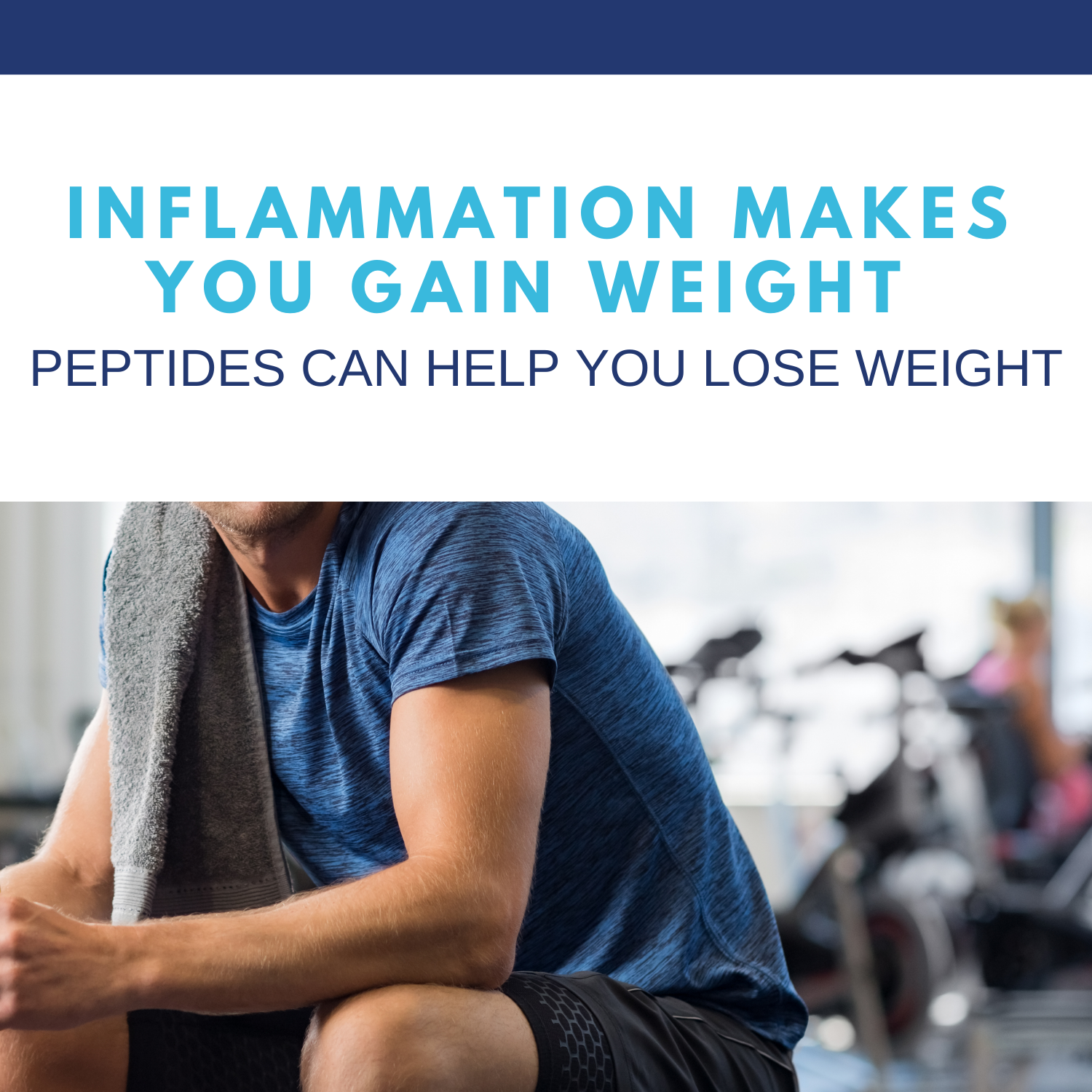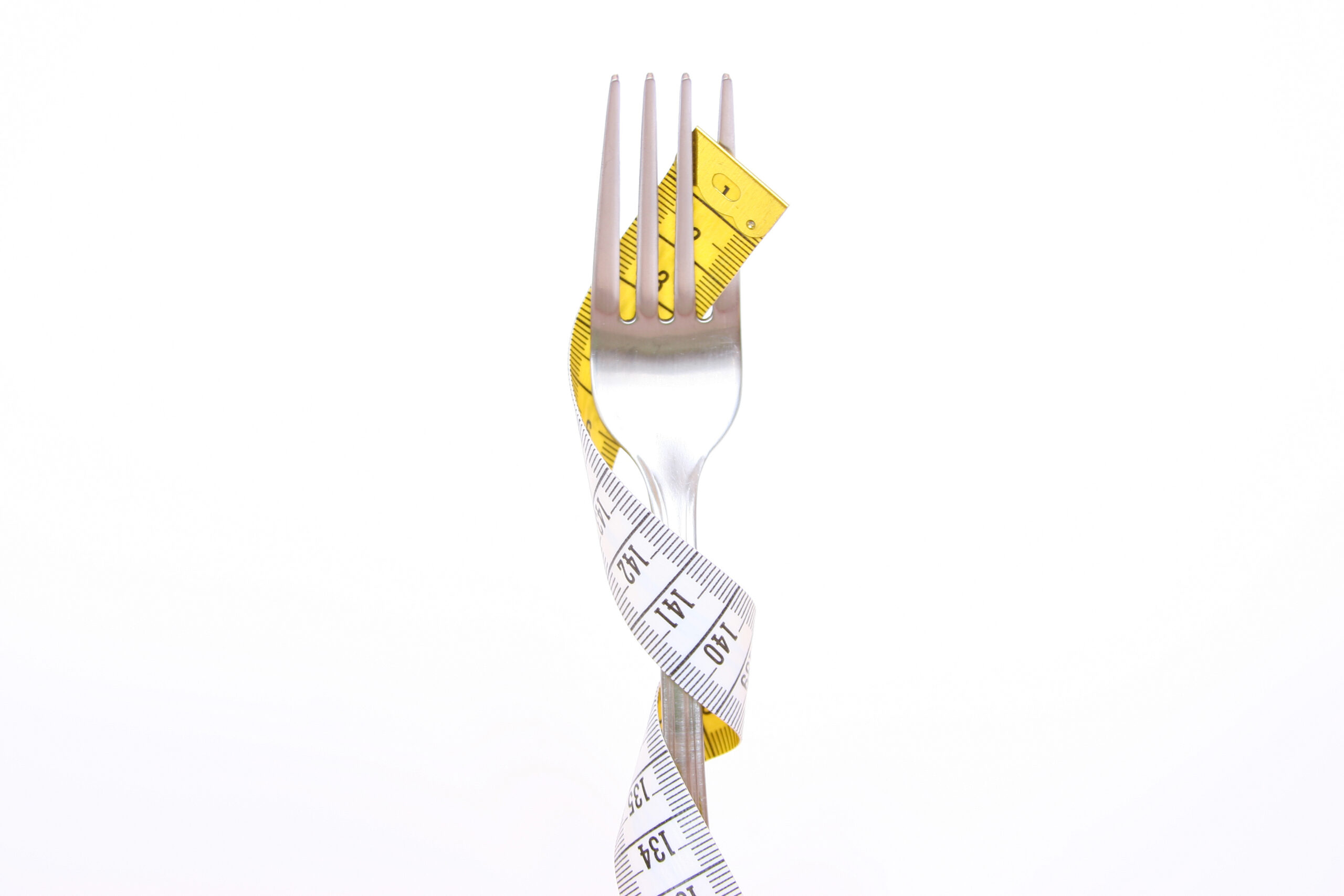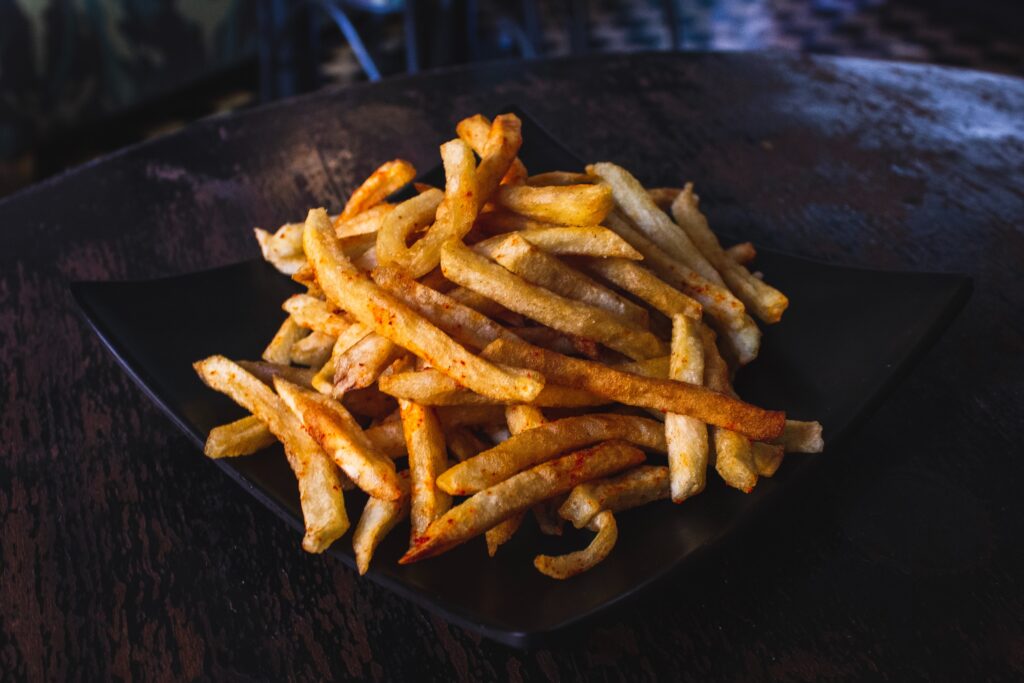Can sleep affect your weight? Doctors have uncovered several reasons why poor sleep can be adding inches to your waistline. Here are the reasons why and some tips for better sleep.
Continue readingThe Truth About Genes and Weight Loss in Men
10 Tips for Men Who Want to Lose Weight After 40
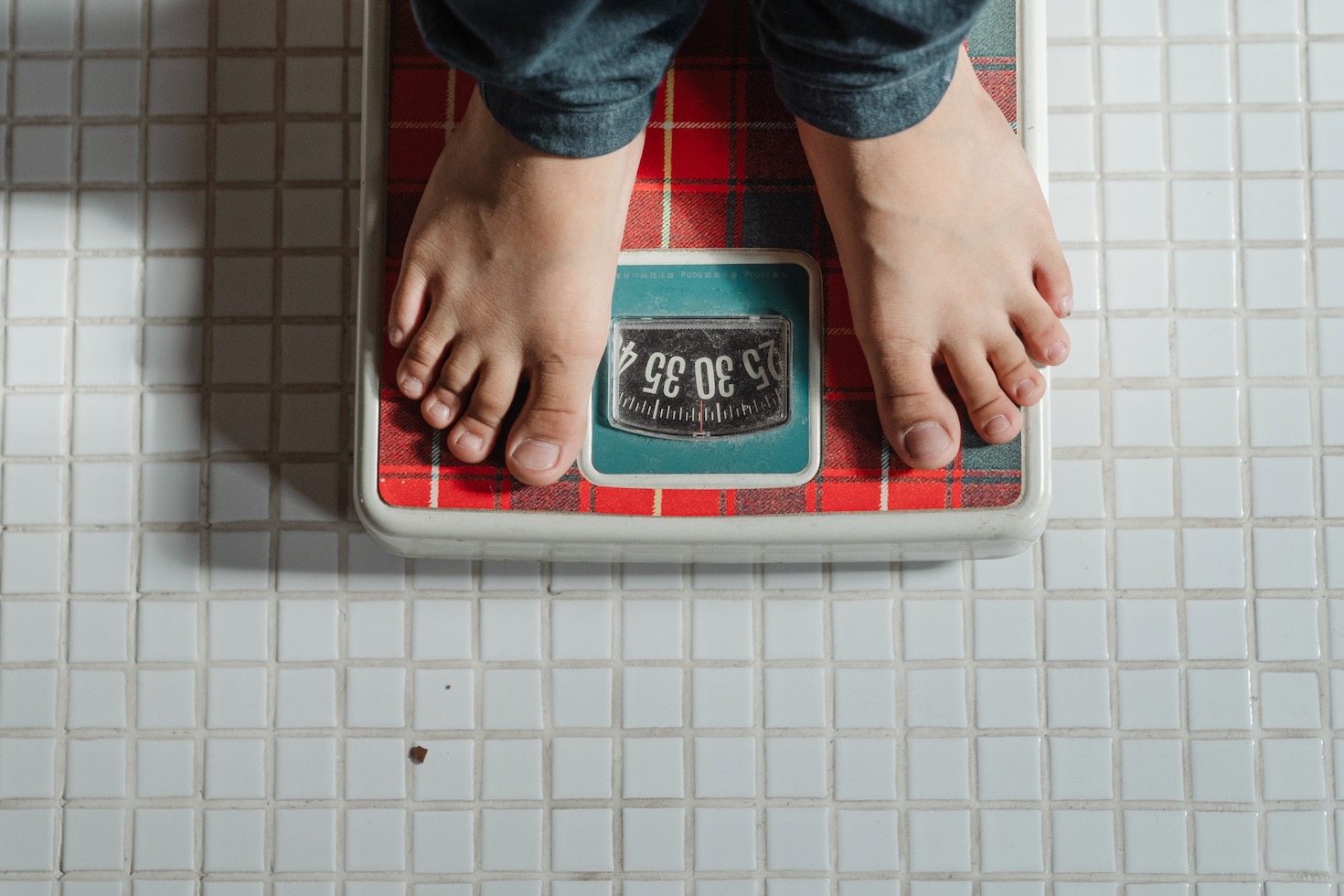
If you’ve tried to lose weight after 40, you know the truth—it’s not as easy as it used to be.
Before, you could add a mile to your morning run, pump up your lifting for a few days, or cut back on dessert a night or two and your weight would come back in line.
No more. Once you reach middle age and beyond, weight loss gets a lot harder. What used to work doesn’t work anymore.
Why is that? And what can you do about it?
Why Is It Harder to Lose Weight After 40?
Hormonal Changes
Starting around the age of 40, testosterone levels tend to drop. Testosterone is responsible for regulating fat distribution, muscle strength and mass. As levels go down, the body tends to store more fat.
Men also produce less growth hormone as they age, and growth hormone also helps the body burn fat. According to one 2014 study, the production of growth hormone declines by 14 percent per decade.
Muscle Loss Makes It Harder to Lose Weight After 40
Studies indicate that after the age of 40, people typically lose about 8 percent or more of their muscle mass each decade. The process also accelerates the older you get unless you are fighting back with increased resistance training. If you’re dealing with a chronic disease like diabetes or cardiovascular disease, your rate of muscle loss could be faster.
Since muscle burns more calories than fat, the more muscle you lose, the fewer calories you will burn, sending more to be stored as fat.
Increased Stress
At midlife, we often experience more stress than we did when we were younger. You may be experiencing more work-related stress, and stress is known to contribute to weight gain. If you add on family-related stress, particularly if you have aging parents, the effects could be greater.
Changing Lifestyle
As you enter your 40s and beyond, your career is often in full swing, which can present a few challenges when it comes to weight. You may be extremely busy with work and unable to devote enough time to exercise and eating well. You may also be more sedentary than you were in your younger years, particularly if you work at an office and commute every day.
If you have young children you’re taking care of, or even teenagers that are demanding your attention, you may have little time to yourself, which can lead to dietary changes and skipped days at the gym. And though you are working hard throughout the day, you’re not working out like you may have done when you were in your 20s.
You’re Still Focusing on Aerobic Exercise
What you did in your 20s to lose weight likely won’t work after 40. That’s mainly because sticking to aerobic exercise is no longer enough. Whereas you may have been able to do a daily run or bike ride before to lose weight, doing them now may not have the same effect.
Aerobic exercise is excellent for your cardiovascular health, but it does little to build up your lean muscle mass. You need to add more strength training as well.
Your Old Dietary Changes Don’t Help You Lose Weight After 40
You cut back on calories. You limited your portion sizes. And the weight isn’t going anywhere.
That’s because after the age of 40, simply cutting back on calories is no longer enough. It becomes more about what kinds of foods you’re eating. Those that spike blood sugar levels, for instance, will contribute to weight gain after 40 even if you consume less of them.
Simply cutting calories can also slow down your metabolism as it tries to conserve energy, keeping your weight stubbornly where it is.
You’re Not Getting Enough Sleep
When you’re sleep-deprived, your body releases stress hormones that stimulate hunger—particularly for high-fat and high-sugar foods. That means if you’re regularly getting six hours or less, your body will be primed to gain, not lose, weight.
Your Gut Microbiome is Unbalanced
We all have a balance of good and bad bacteria in the gut. As long as the good guys outnumber the bad, we tend to be healthy overall. But if the bad guys start gaining a foothold, they can cause problems, including those that lead to weight gain.
Researchers found this to be true in a recent study. They analyzed stool samples taken 6-12 months after people started a commercial weight-loss coaching program. The results showed that the gut microbiome could influence the ability to lose weight.

Does a Slow Metabolism Hinder Weight Loss After 40?
It’s long been an accepted theory that as we age, our metabolism slows down, making it harder to lose weight.
A recent study seemed to negate this idea, at least somewhat.
An international team of scientists analyzed the average calories burned by more than 6,600 people as they went about their lives. The participants’ ages ranged from one week old to 95 years, and they lived in 29 different countries.
The results showed that our metabolisms don’t really start to decline until after the age of 60. Then, a person’s cells do start to slow down. By the age of 90, the scientists estimated that people would need about 26 percent fewer calories each day than someone in midlife.
The scientists concluded that midlife weight gain may have more to do with age-related changes in lifestyle and body composition than it does metabolism.
10 Tips to Help You Lose Weight After 40
It’s more challenging to lose weight after the age of 40. But that doesn’t mean you can’t do it. You simply need to change your approach. We have ten tips to help you do that.
1. One-size-fits-all does NOT work.
One of the biggest mistakes I see men making is following the crowd. If the trend is the keto diet, they try that. If it’s running marathons, they get into that.
Sometimes these approaches work, but often they don’t, and that can leave you feeling discouraged.
The problem is that what works for one person may not work for another. You need to find out what’s making it hard for you to lose weight before you can create a weight-loss plan that will be successful for you.
Your metabolism, hormone balance, microbiome, genetic makeup, and micronutrient status all affect whether or not you can lose weight.
I recommend that men talk to their doctors and get tested to find out what may be going on. In my office, we create personalized weight loss plans that circumvent the frustration and get right to the source of the problem. These may include medical interventions and prescriptions, peptide and supplement management, lifestyle changes, nutrition, and support from certified health coaches.
Once you find out what your body is doing, you can address any problem areas and increase your odds of being able to shed the pounds.
2. Balance your hormones.
As noted above, hormonal changes that you experience as you age can make it harder for you to lose weight.
Balancing your testosterone levels may help. In a 2014 study, researchers found that long-term testosterone therapy in men who tested low for testosterone produced “significant and sustained weight loss, marked reduction in waist circumference and BMI, and improvement in body composition.”
In a later review, researchers found the same results: men with low testosterone who were obese experienced better results when they included testosterone therapy.
How can you tell if you’re low on testosterone? Get tested! According to a 2006 study, 38.7 percent of men tested were deficient in testosterone. The odds were higher in men with high blood pressure, high blood sugar, diabetes, and obesity than men without these conditions.
Obesity and low testosterone levels are also interrelated, according to the research, and “strongly influenced by dietary factors.” More about that below!
Remember that testosterone isn’t the only hormone you want to check. Growth hormone is the other important one. We can treat that with diet and supplements, which can help you lose weight.
In one study of obese adults, researchers found that those treated with growth hormone had a 1.6-fold increase in body weight loss as fat and a greater loss of visceral fat than those who received a placebo.

3. Determine your best weight-loss diet.
Simply picking a diet out of the air is unlikely to lead you to successful weight loss. You may think that you can increase your exercise and make it work, but that usually fails too.
Instead, after you find out what’s going on in your body, you can formulate a diet that will work for you. If you’re low on testosterone, for instance, cutting back on desserts and pastries may be particularly important.
In a 2018 study, those who had a pattern of eating more bread and pastries, dairy products, desserts, and restaurant foods were more likely to have low testosterone levels. These men also had a pattern of consuming too few homemade foods and dark green vegetables.
In general, the following tips are critical when you’re trying to lose weight after 40:
- Return to real foods—fruits, vegetables, whole grains, lean proteins, and nuts and seeds.
- Limit or avoid refined sugars—it promotes weight gain as well as diabetes and heart disease.
- Cut back on all processed foods—anything that comes in a bag or box and is likely high in sugar, fat, and sodium.
- Make plant-based proteins a cornerstone of your diet. When choosing animal-based proteins, focus on lean meats and fish.
- Limit dairy intake. When you do consume it, choose organic and grass-fed.
Beyond these basics, I also recommend bumping up your protein intake. Studies show it helps encourage weight loss, plus it will support your efforts to build more muscle. In a 2017 study, researchers found that those on a high protein diet lost significantly more weight than those in a standard protein diet.
4. Consider fasting to lose weight after 40.
There are a variety of different ways to try fasting. What they all have in common is that they allow your body to go for extended periods without food. This is helpful for a few reasons.
First, fasting forces your body’s cells to resort to other ways to produce energy. That means they are more likely to use fat for energy rather than glucose, which can help you lose weight.
Second, fasting helps bring your attention more fully to what you usually eat. It reminds you that you don’t need to be consistently consuming, and can help you to approach your diet more mindfully.
Finally, fasting can be just what your body needs to jumpstart your weight loss. It pulls it out of its habitual way of burning calories and forces it to regroup.
Most of us fast when we sleep. You can easily extend that time by choosing to stop eating after 8:00 at night and not to eat again until 8:00 the next morning. That simple 12-hour fast can help increase bodily repair and make it easier for you to lose weight.
In a recent review of 27 trials, researchers found that intermittent fasting resulted in weight loss of 0.8 percent to 13 percent with no serious adverse events.

5. Develop stress-management tools.
You may not realize it, but stress could be a tall barrier between you and your efforts to lose weight.
Particularly if your stress is ongoing—or chronic—it could be having a large effect on your ability to reach your health goals.
In a 2017 study comparing stress levels and body weight, researchers found that levels of the stress hormone cortisol in the participants’ hair were significantly correlated to larger waist circumference and higher body mass index (BMI).
In a later study, researchers again found that higher cortisol levels and chronic stress were predictive of greater future weight gain.
The problem is that cortisol is a strong appetite stimulant, meaning that you will be more inclined to eat when you’re stressed out. You know how it goes—you’re having a rough day, so you reach for comfort food. And usually, that food is not good for you.
Worse, any excess calories you consume because of high cortisol are more likely to be deposited in your belly. Hello, belly fat!
We can’t eliminate stress in our lives. But we can incorporate regular activities that will help reduce it. We all know this. The problem is we’re not doing it often enough. Schedule it into your day. Relieving stress is just as important as exercising and eating a healthy diet.
Good stress-relieving activities include:
- Daily exercise
- Time outdoors in nature
- A healthy diet
- Social support
- Yoga and tai chi
- Meditation
- Journaling
- Pet therapy
- Music
- Crafts
- Deep breathing
- Anything that helps you feel calm and centered
6. Check your drinking habits.
Though moderate drinking levels aren’t likely to hurt your weight-loss efforts, if you drink more than 1-2 drinks a day, it may be time to re-examine that habit.
Alcoholic drinks contain extra calories that can contribute to weight gain if you’re not careful. In one study of over 7,600 men, researchers found that heavy drinkers (over 30 grams a day) showed the greatest weight gain and had the highest rates of high BMIs over a five-year period. It didn’t matter what type of alcohol they drank.
In another study of nearly 5,000 participants, men who consumed more than 60 grams per day of alcohol were more frequently obese compared with non-drinkers. They were also more likely to have larger waistlines.
Simply drinking alcoholic beverages may also encourage you to eat too much or eat unhealthy foods. In a 2017 study, researchers found that alcohol consumption could lead to “overeating episodes.” Reducing alcohol could help increase willpower when it comes to diet.
How much alcohol can you drink and still lose weight? Scientists attempted to answer that question in a recent 2021 review. They found that beer seemed to have a direct effect on weight gain, particularly waist circumference in men. According to their results, about 16.9 ounces of beer per day could hinder your ability to lose weight.

7. Get 7-8 hours of sleep per night to lose weight after 40.
When you don’t get enough sleep, you’re more likely to gain weight. It’s that simple.
There are a lot of reasons for this, mainly because of the way sleep deprivation affects your hormones. But the bottom line is that every time you fail to get 7-8 hours of sleep per night, you’re making it much harder for your body to lose weight.
In a 2017 comprehensive review of the literature, scientists found that individuals who regularly slept less than 7 hours per night were more likely to have higher BMIs and to develop obesity than those who slept more.
Lack of sleep stimulates stress hormones, which as noted above, can lead to weight gain. It also increases hormones related to hunger, making you want to eat more foods high in carbohydrates. Finally, it leads to fatigue, which usually leads to less physical activity.
How do you know how much sleep you’re getting? You can check when you go to sleep and get up, but that’s not always accurate. It doesn’t tell you, for instance, about the quality of your sleep.
I recommend you go a step further and track your sleep. We have technology now that allows you to track not only how long you sleep but helps analyze your sleep patterns so you can improve your sleep schedule and environment.
Check out these tools for comprehensive sleep tracking, then choose one that will work for you and get serious about your sleep!
8. Get stronger.
We talked about muscle loss above, and how it’s related to weight gain.
The good news is that the opposite is often true—gaining muscle loss correlates with losing weight.
Several studies show this to be true. It works because building up your muscles through resistance training changes the way fat cells operate. As your muscles are stressed through lifting, pushing, or pulling, cells release a substance that instructs fat cells to start the fat-burning process.
This change affects the muscles, for sure, but it can also set off a fat-burning response throughout the body. The more resistance training you do, the more you can change your body to support long-term weight loss.
In a study by the Harvard T.H. Chan School of Public health, researchers found that men who performed 20 minutes of weight training each day showed a smaller age-related increase in abdominal fat, compared to men who spent those 20 minutes doing aerobic activities.
Resistance training also helps lower the risk of developing type 2 diabetes. But even if you have diabetes, strength training can help. In one study of older men who had already been diagnosed with type 2 diabetes, two sessions per week of resistance training significantly improved insulin sensitivity and fasting glycemia, and decreased abdominal fat.

9. Incorporate more daily movement into your life.
Yes, your daily workout is important. But as you age, moving more throughout the day is even more important.
That’s because overall, we are more sedentary than we used to be. In a study comparing 19th– and 21st-century Americans, researchers found a half-hour decline in daily physical activity. They also found that Americans’ resting metabolic rate—the total number of calories burned when the body is completely at rest—has fallen by about 6 percent since 1820.
This, despite our devotion to daily workouts.
In another study published in the American Journal of Epidemiology, researchers found that replacing just 30 minutes of sitting with any kind of movement, every day, could help you live longer. And in a 2018 study, scientists found that standing instead of sitting for six hours a day could prevent weight gain and help people to lose weight.
It can help to keep track of how much time you spend sitting each day, and how much time you spend moving. You may be surprised.
The key to losing weight after 40 is to move more throughout the day. The more you sit, the more your large muscles are not using glucose, which can cause blood sugar levels to rise. Prolonged sitting can also change the activity of genes in such a way that they promote more fat storage.
Try these tips:
- Set a timer that reminds you to get up and move around at least once every 30 minutes.
- Incorporate walking into your meetings and outings with friends.
- Park far away and take the stairs.
- Adopt a dog.
- Keep a jump rope in your office.
- Turn on the tunes and dance.
- Make it a habit to head out for a walk or play a quick game of catch when you get home from work.
- Keep exercise equipment available.
10. To lose weight after 40: focus on establishing new daily habits.
If you want one tip to lose weight after 40, this is it: change it up!
What you did a decade or two decades ago is no longer going to work. You have to try something new.
After you talk to your doctor and get tested, sit down with your planner and create a new schedule. When can you cook a homemade meal? Add more resistance training to your schedule? Move more?
On what days will you take a walk or get back to your woodworking to reduce stress? When will you get that new sleep tracker? On what days will you fast for 12 hours or more?
You get the idea. Make some real changes in your life, and you’re likely to be more successful.
Remember—you can contact us for a personalized consultation. We can help you create that weight-loss plan that will be much more likely to work for you.

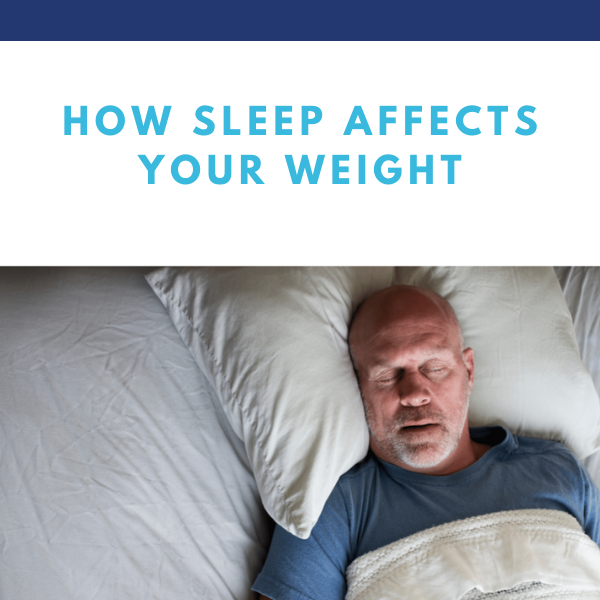
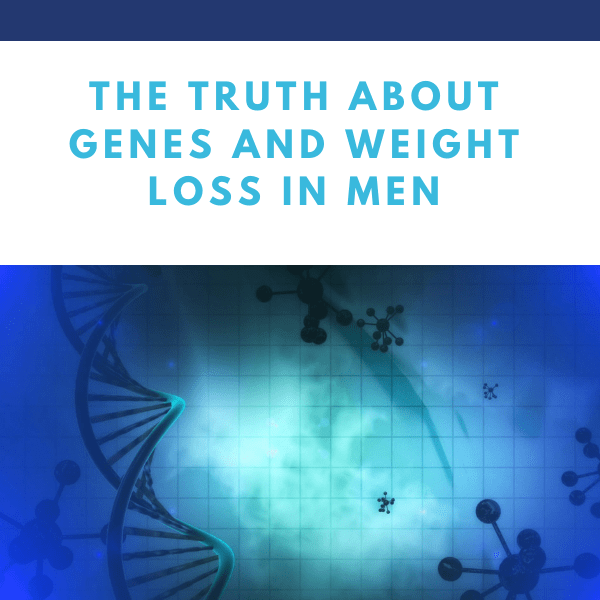
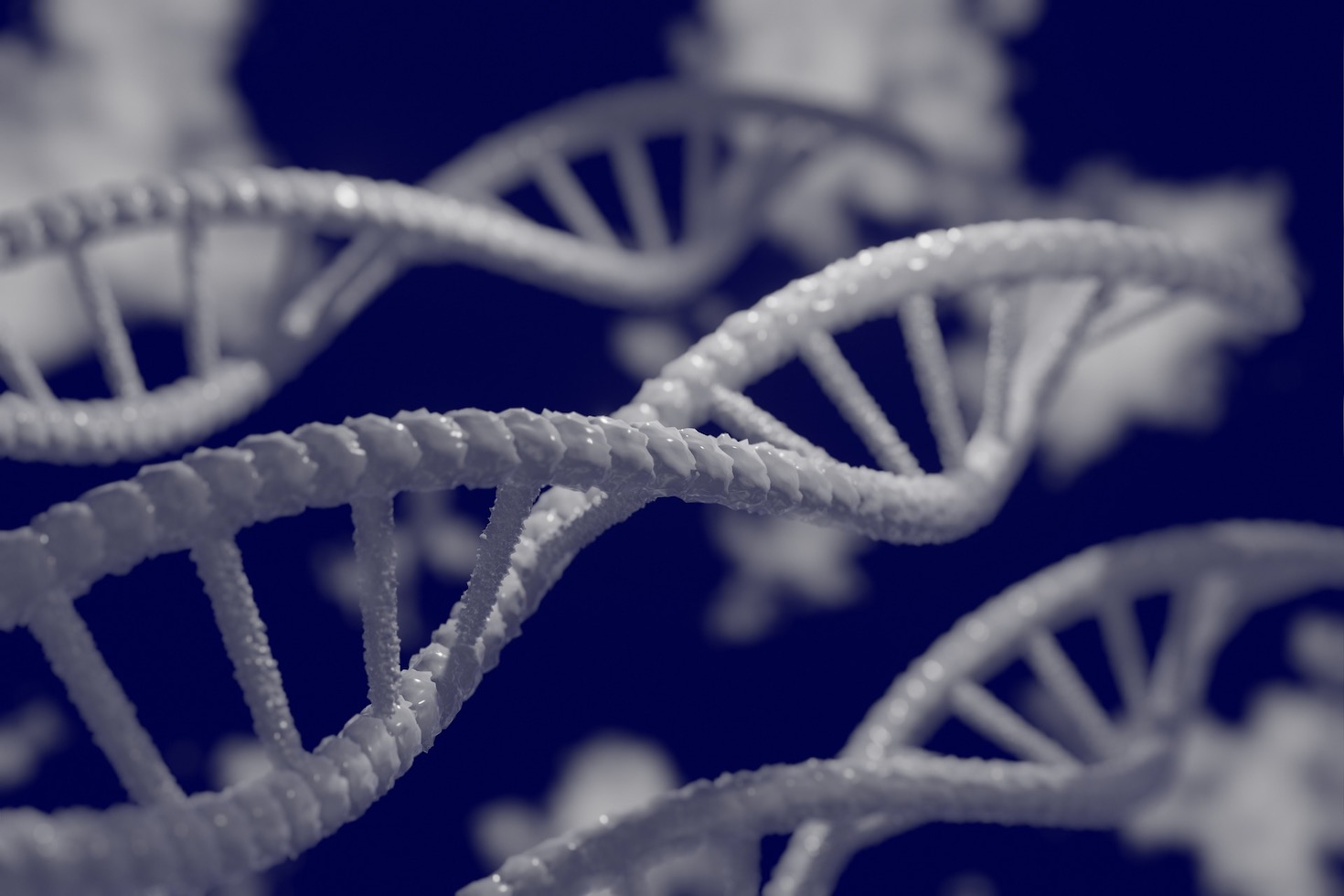
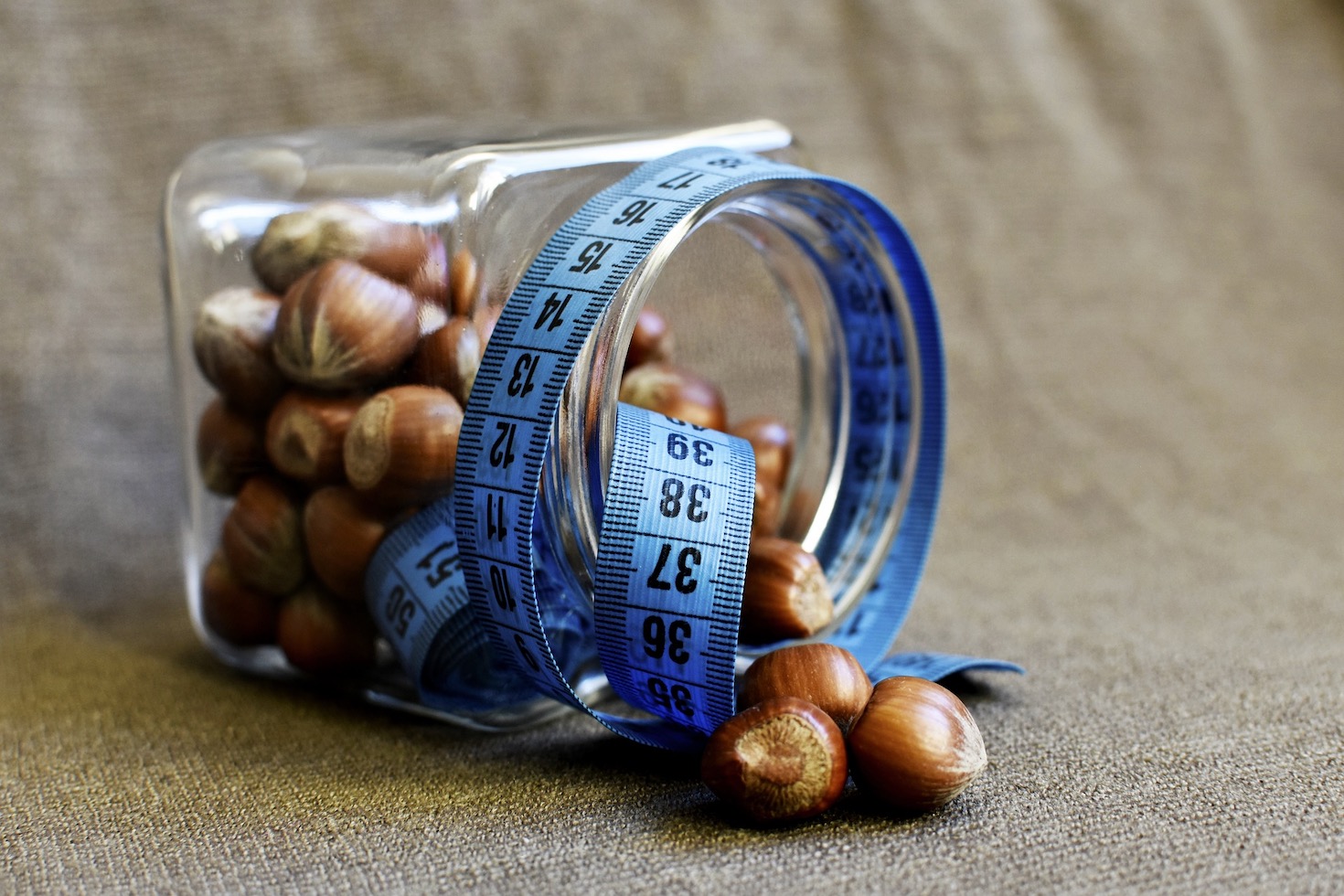
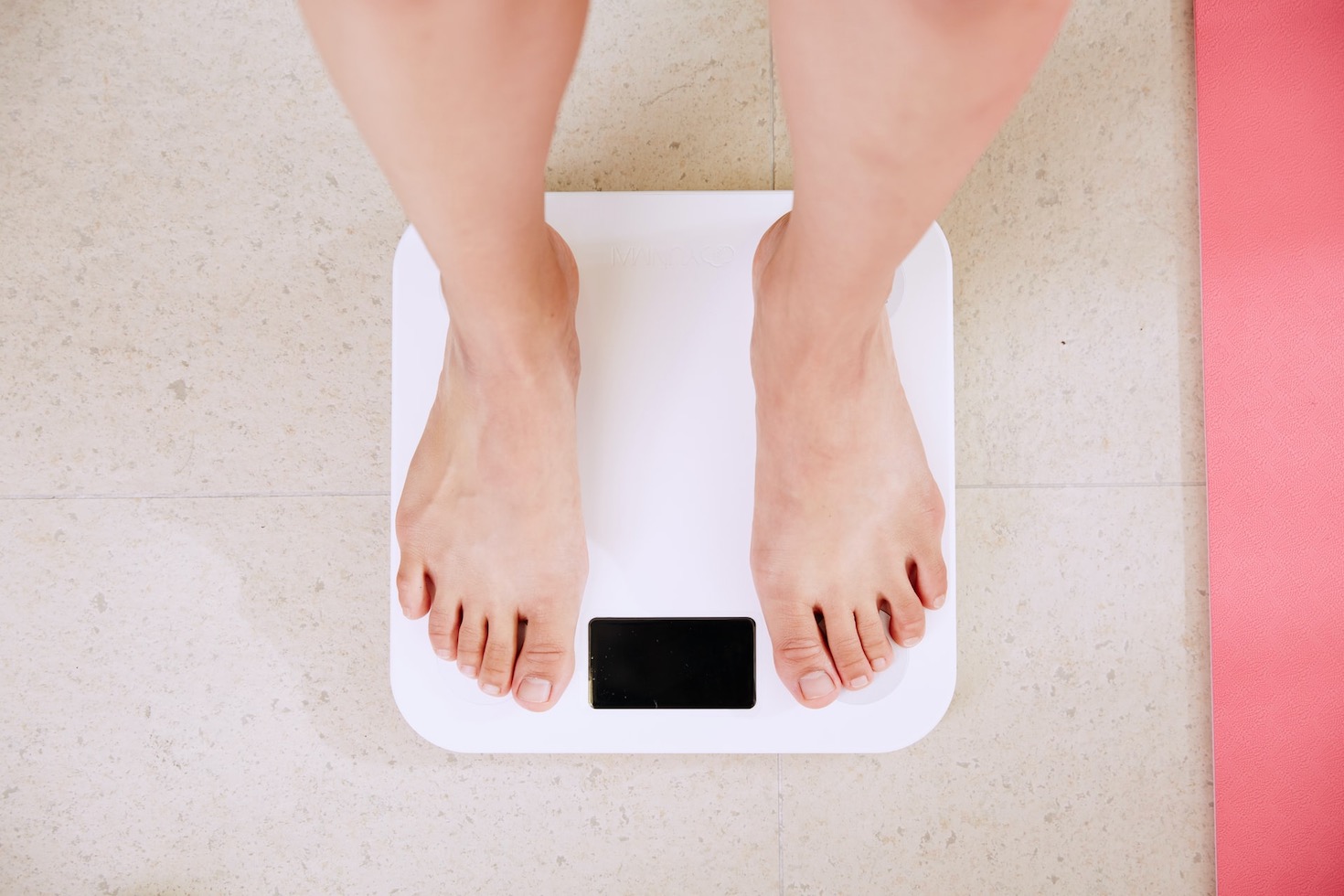
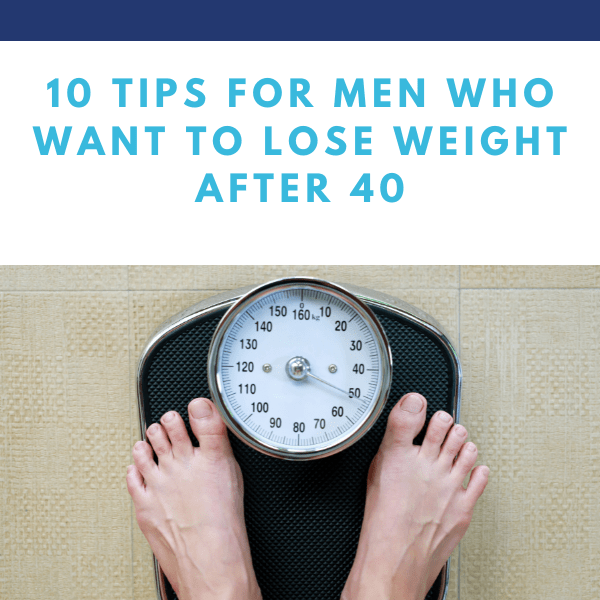
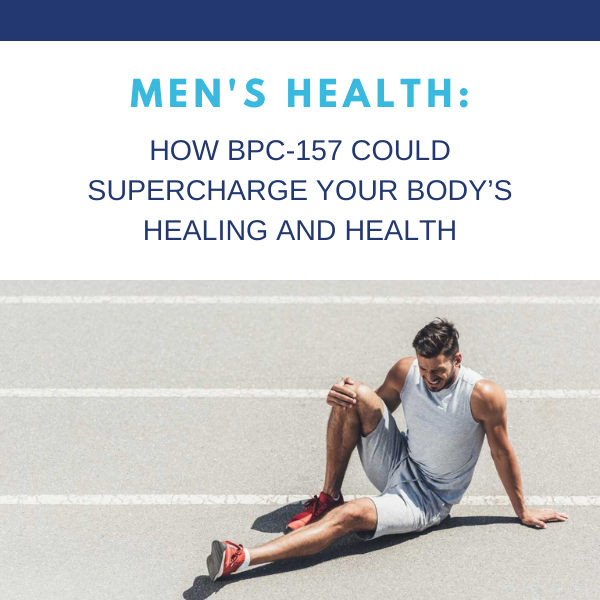


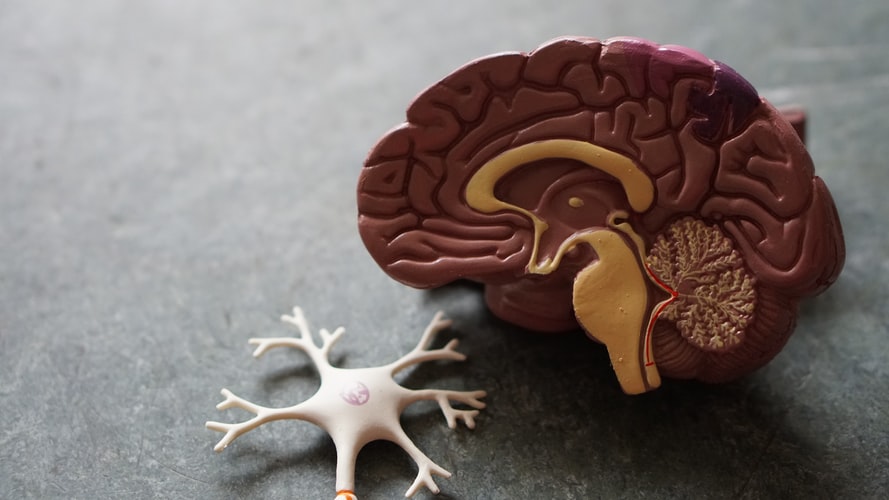

 In Male 2.0™, Dr. Tracy Gapin has turned everything we once thought we knew about men’s health and performance upside down. The old model of how to be “a man” is broken. A man who works himself to death. Unfortunately, a man who tries to NOT get sick but isn’t really healthy either. And a man who takes a pill for every ill but is never really cured. That was Male 1.0. Now, imagine being THE MAN ─ owning your performance in the bedroom, the weight room, and the boardroom. Living a fully optimized life. Becoming limitless. This is Male 2.0!
In Male 2.0™, Dr. Tracy Gapin has turned everything we once thought we knew about men’s health and performance upside down. The old model of how to be “a man” is broken. A man who works himself to death. Unfortunately, a man who tries to NOT get sick but isn’t really healthy either. And a man who takes a pill for every ill but is never really cured. That was Male 1.0. Now, imagine being THE MAN ─ owning your performance in the bedroom, the weight room, and the boardroom. Living a fully optimized life. Becoming limitless. This is Male 2.0!